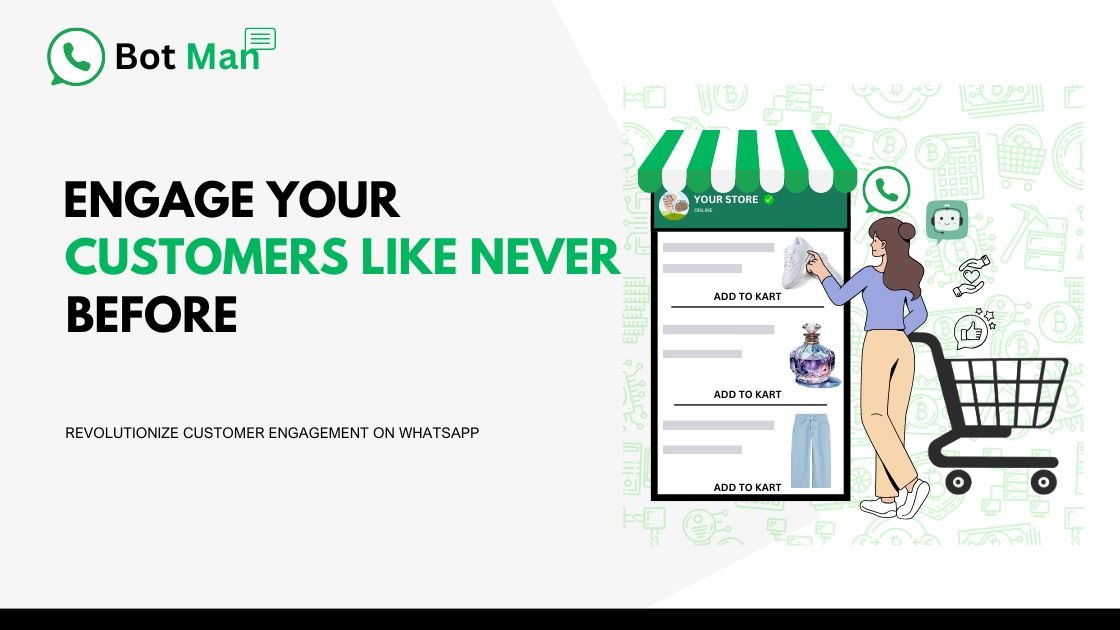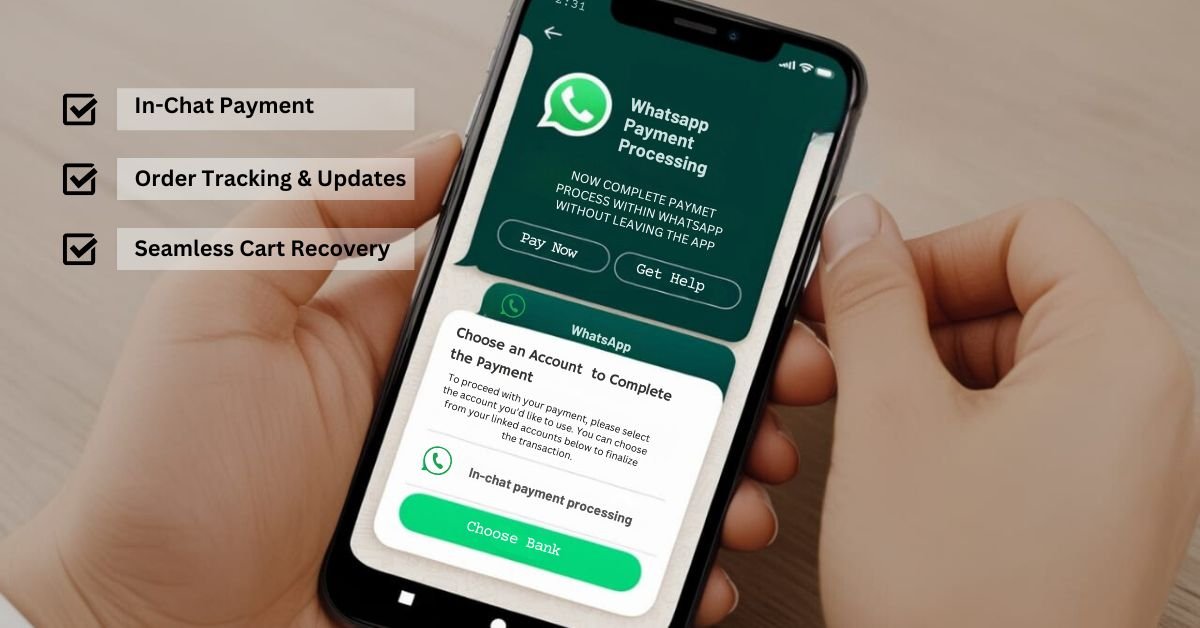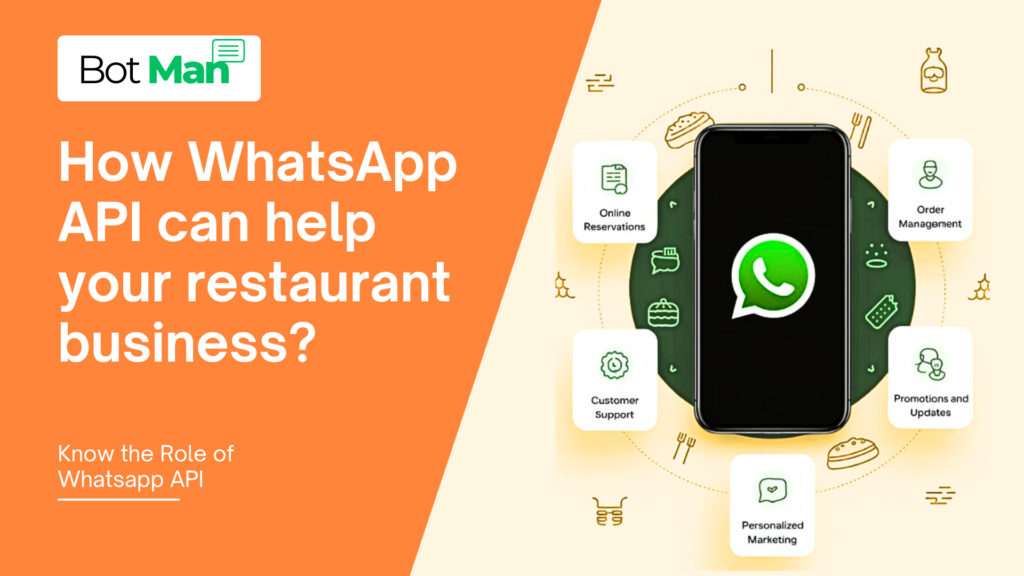Future revealed Transform Customer Engagement with Conversational Commerce for WhatsApp

Industry Insights: The Evolution of Digital Commerce
The digital commerce landscape is evolving rapidly, reshaping the way customers interact with brands. By 2025, global spending through conversational commerce channels is expected to reach $290 billion. However, businesses still face significant challenges in meeting customer expectations:
- 67% of customers prefer self-service options
- 75% expect instant responses
- Traditional customer service channels struggle with fast response times
- Email engagement rates hover around 20%
The Conversational Commerce Revolution
Enter conversational commerce for WhatsApp—a game-changing solution that transforms how businesses connect with customers. With over 2 billion active users and a staggering 98% message open rate, WhatsApp has become a cornerstone of modern business communication. Leveraging WhatsApp, brands can seamlessly integrate into their customers’ digital lives, enhancing engagement and providing immediate, personalized interactions.
Why WhatsApp is Transforming Conversational Commerce
As consumer behavior increasingly shifts towards instant and personalized online experiences, conversational commerce for WhatsApp has emerged as a powerhouse. Globally, WhatsApp enables businesses to reach customers directly, providing real-time, one-on-one interactions. For brands, it’s a strategic tool for delivering personalized service, streamlining purchasing, and enhancing customer engagement on a platform where customers are already actively communicating.
1. Personalized Customer Experience
Personalization is central to successful conversational commerce, and WhatsApp enables businesses to provide tailored support that feels human and individualized.
- Real-Time, Human-Like Interactions: WhatsApp facilitates real-time engagement, enabling brands to address questions and guide customers through their purchasing journey. These interactions feel human-like, building rapport and enhancing trust.
- Contextual Product Recommendations: WhatsApp’s integration with customer data allows for personalized recommendations which helps the businesses to retarget the audiences in order to convert them as a potential buyer.
- Instant Query Resolution: When customers have questions, WhatsApp enables quick, direct responses, empowering them to make well-informed purchase decisions without delay. This immediate support improves the customer experience and reduces frustration from delayed responses.
- Personalized Shopping Assistance: Through AI-driven chatbots, WhatsApp can simulate a personal shopper experience, offering tailored guidance on sizes, product pairings, and more, helping customers find exactly what they need.
2. Enhanced Customer Engagement
Engaging customers is key to converting casual browsers into loyal customers, and conversational commerce for WhatsApp offers an ideal set of features to capture and maintain attention.
- Interactive Product Catalogs: Businesses can create catalogs directly within WhatsApp, allowing customers to browse products without leaving the chat. This keeps the shopping experience seamless and interactive.
- Rich Media Sharing Capabilities: WhatsApp supports images, videos, and documents, enabling brands to share product photos, videos, and instructional content that increase engagement—ideal for product demonstrations or sharing testimonials.
- Click-to-Chat Advertisements: By embedding WhatsApp into ads, customers can instantly begin a chat with a brand by clicking the ad. This reduces friction in the buying process and offers a smooth path for customers to interact with the brand.
- Automated yet Personal Responses: While responses may be automated, conversational commerce for WhatsApp allows customization in tone and content, maintaining a personalized experience that resonates with customers.
3. Streamlined Purchase Journey
A streamlined purchase journey is essential for reducing drop-offs, and WhatsApp’s features allow brands to guide customers smoothly from product discovery to purchase.
- In-Chat Payment Processing: WhatsApp offers in-chat payment options in certain regions, letting customers complete transactions directly in the app, reducing barriers in the buying process and helping to prevent cart abandonment.
- Order Tracking and Updates: Post-purchase updates build trust. Through WhatsApp, businesses can send automated updates on order status, tracking, and delivery estimates, providing transparency and reassurance.
- Seamless Cart Recovery: WhatsApp can send cart abandonment reminders with incentives like discounts or free shipping, motivating customers to complete their purchases and improving recovery rates significantly.
Implementing Conversational Commerce Through WhatsApp
To maximize the benefits of conversational commerce for WhatsApp, it’s essential to implement strategies that cater to different customer needs.

1. Customer Service Excellence
Providing high-quality customer service is critical to customer satisfaction, and WhatsApp’s features facilitate efficient, responsive support.
- 24/7 Automated Support: Chatbots enable businesses to offer support round-the-clock, reducing wait times and ensuring customers receive assistance anytime they need it.
- Multilingual Capabilities: With WhatsApp, businesses can provide support in multiple languages, catering to a global audience and enhancing the experience for non-native speakers.
- Quick Response Templates: For frequently asked questions, WhatsApp allows businesses to create response templates, improving response times and reducing the workload on support teams.
- Seamless Human Handover: If a chatbot can’t resolve an issue, WhatsApp makes it easy to transition the conversation to a human agent, ensuring the customer receives the support they need.
2. Sales and Marketing
Beyond customer service, conversational commerce for WhatsApp is a powerful tool for sales and marketing efforts.
- Promotional Broadcasts: WhatsApp broadcasts enable brands to send promotional messages, including exclusive offers, discounts, and new product alerts, to multiple customers simultaneously.
- Product Launches: Announcing new products through WhatsApp allows brands to keep customers in the loop, building anticipation and rewarding loyalty.
- Flash Sales Notifications: WhatsApp’s immediacy ensures that customers are notified about limited-time sales right away, prompting quick actions on deals.
- Loyalty Program Management: Informing loyal customers about rewards or points available through WhatsApp fosters engagement and drives repeat business.
3. Post-Purchase Support
Post-purchase communication builds loyalty, and WhatsApp allows for a range of follow-up options.
- Order Confirmations: WhatsApp can instantly send order confirmations, providing peace of mind and clear documentation of the transaction.
- Delivery Updates: As orders progress, WhatsApp can notify customers with tracking information and estimated delivery dates, keeping them informed.
- Feedback Collection: After a purchase, WhatsApp can send feedback requests, helping brands gather insights for future improvements.
Best Practices for Success with Conversational Commerce for WhatsApp
Success in conversational commerce for WhatsApp requires adherence to best practices to ensure messages resonate and drive action.
Message Optimization
- Clear, Concise Communication: Messages should be straightforward and easy to understand.
- Personalized Content: Customizing messages based on customer data enhances engagement and relevance.
- Strategic Timing: Sending messages at optimal times prevents customers from feeling overwhelmed.
- Engaging Multimedia: Adding images, GIFs, or videos can improve click-through rates and make messages stand out.
Customer Journey Integration
- Automated Welcome Messages: Welcoming new customers establishes a positive first impression.
- Behavioral Triggers: Sending messages based on actions, like cart abandonment, aligns with customer interests.
- Purchase Reminders: Timely reminders can nudge customers toward completing orders.
- Follow-Up Sequences: Following up post-purchase can build loyalty and encourage repeat buying.
Performance Tracking
Monitoring key metrics is vital to understanding the effectiveness of conversational commerce for WhatsApp.
- Engagement Metrics: High open and response rates indicate customer interest.
- Conversion Rates: Tracking conversions directly linked to WhatsApp messages shows effectiveness.
- Response Times: Monitoring response times can reveal areas for customer service improvement.
- Customer Satisfaction Scores: Feedback gathered post-interaction helps measure customer satisfaction.
Real-World Applications of Conversational Commerce for WhatsApp
- Product Discovery: Use interactive catalogs, host virtual product demos, and provide personalized recommendations.
- Purchase Support: Assist with product comparisons, real-time inventory updates, and size/fit guidance.
- Post-Purchase Engagement: Offer tutorials, order tracking, and cross-sell opportunities.
Conclusion: The Future of Conversational Commerce for WhatsApp
Conversational commerce for WhatsApp is more than a new channel; it signifies a fundamental shift in how businesses interact with customers. As we move toward a more digital future, businesses that embrace WhatsApp for conversational commerce will not only keep up but thrive. The future of commerce is conversational, and WhatsApp is leading this transformation.
Success in conversational commerce for WhatsApp is about more than just implementing technology—it’s about creating meaningful, valuable conversations that enhance customer experience and foster growth.



